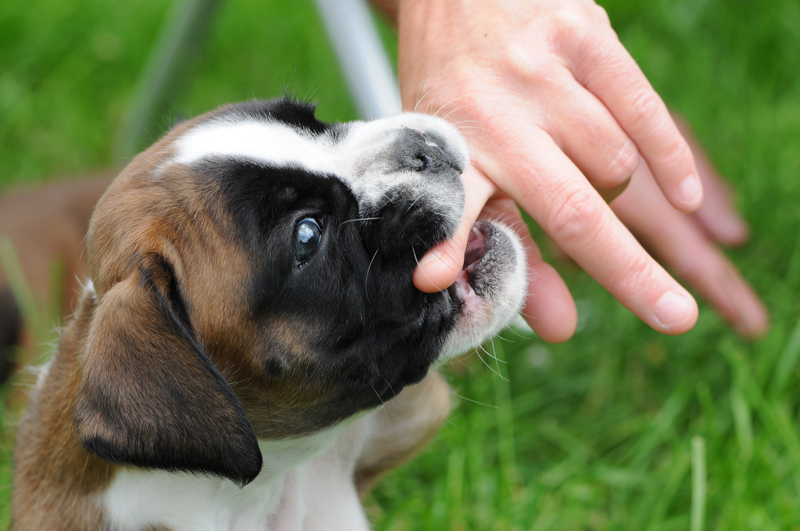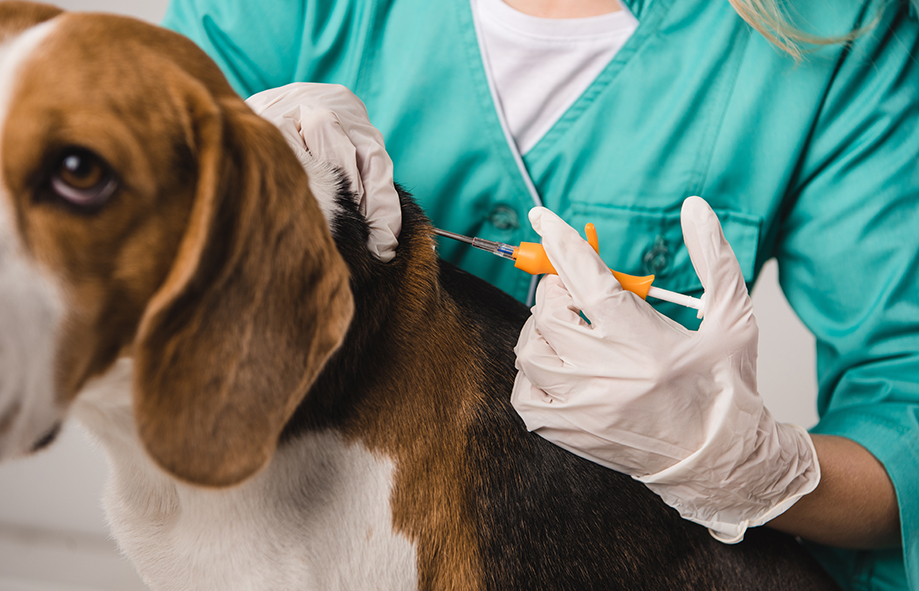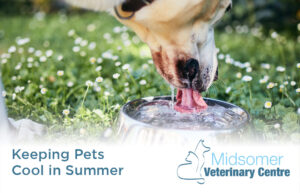Why vaccinate your dog?
Vaccination is important to protect your dog against a number of potentially fatal diseases. Many diseases are highly contagious and can be spread rapidly between dogs whilst out on walks or in kennels. When your dog receives a vaccination he/she will also receive a thorough health examination and you can discuss any health concerns you may have with the one of our experienced Vets.
When should you vaccinate your dog?
Puppies can be vaccinated from 6 weeks of age but they cannot be fully immune until 12 weeks. The primary vaccination course requires three injections to be given 2-4 weeks apart, so we recommend doing this at 8, 10 and 12 weeks of age. Please talk to a member of our team if you’d like to discuss your new additions individual needs or click here to find our more about our puppy package.
The course can be started later but your puppy will not be protected from the diseases until a week after the second injection. They should not be taken on walks or mix with strange dogs before this time.
Adult dogs that haven’t been vaccinated can receive an out of date booster at any time.
Similar to puppies, they will need to have an initial dose of the vaccine followed by a second dose 2-4 weeks later. To provide lifetime protection your dog will need to receive annual booster vaccinations.

What diseases can we protect against?
Parovirus
Parvovirus is a highly contagious virus which is still commonly reported in unvaccinated dogs in the UK. It is spread through the faeces of infected dogs and via objects and people which come into contact with infected dogs (e.g. shoes, clothing and water bowls). The virus can survive in the environment for months or even years. Affected dogs may suffer with vomiting, bloody diarrhoea, depression and abdominal pain, which can lead to dehydration and ultimately death. There is no specific treatment for parvovirus so protection for puppies and adult dogs through vaccination is recommended.
Distemper
Distemper is a highly infectious viral disease of dogs. Vaccination has reduced its incidence in the UK but pockets of infection still exist. It is spread when affected dogs meet unvaccinated, often younger, dogs but older immunocompromised dogs can also be affected. Dogs usually have respiratory symptoms which progress to vomiting and diarrhoea and finally neurological and skin changes. There is no specific treatment and so protection through vaccination is recommended.
Infectious canine hepatitis
This disease, caused by canine adenovirus, affects the lungs, liver, kidneys and eyes. Dogs can become ill very quickly and there is no specific treatment available. Young puppies and unvaccinated dogs are most at risk.
Leptospirosis
Leptospirosis (Weil’s Disease) is a bacterial disease which is spread via the urine of infected animals such as rats and dogs. It is a zoonotic disease which means it can spread to humans too. Symptoms in dogs vary from mild lethargy and depression through to abdominal pain, jaundice and even death. Treatment is not always successful so protection through vaccination is recommended. An increase in the disease has been seen recently in the Bath and Bristol area. For more information click here.
Kennel Cough
Canine infectious tracheobronchitis (also known as kennel cough) is a highly contagious disease, which can occur wherever dogs come into close contact e.g. exercise areas, dog shows, kennels. Symptoms include a harsh dry cough, tiredness and loss of appetite, but can be more serious in some individuals. Multiple viruses and bacteria can be involved. It is possible to vaccinate against the 2 most common agents involved in this disease.
Rabies
Although this is not routinely needed in the UK, dogs need to be vaccinated against rabies prior to obtaining an EU Pet Passport and travelling abroad. Vaccination can be carried out from 3 months of age. Find out more about our pet passports.
SPECIAL OFFER
Bring more than one animal for vaccinations at the same time and we’ll give you 10% off their vaccinations!
To arrange your cats vaccination and health check please feel free to call us on 01761 412132 or contact us via our online form


